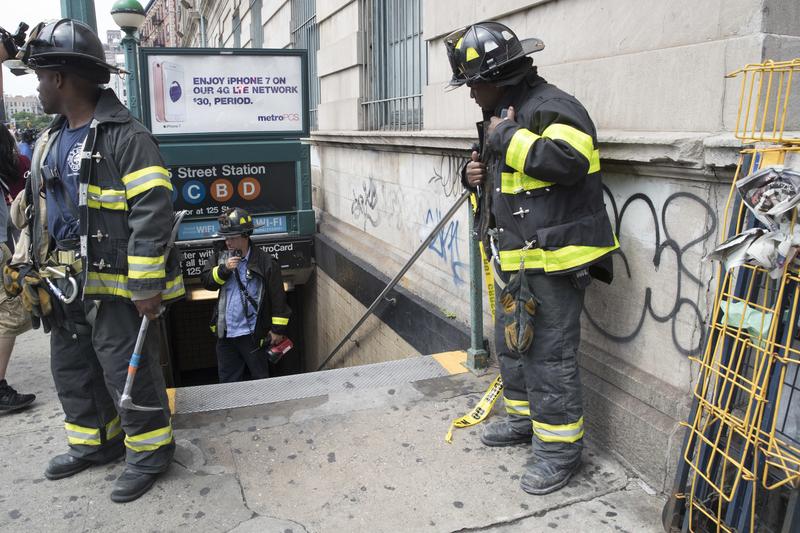
The degradation of the city's transit system has been on full display in the past few weeks. There was that derailment in Harlem. Last week a commuter walked off his stalled train onto the tracks. There have been repeated signal and power problems on the subway. And Thursday, the governor declared a state of emergency for the MTA.
In an executive order, the governor suspended 12 laws related to contracts, leases, licenses and permits "until further notice," for the MTA. The governor's office said it would last for 30 days, and could be renewed after that.
The declaration "will allow us to expedite many of the normal government processes," Cuomo said. "It will no longer be a tortured exercise to do business with the MTA."
He said under the current system it takes about five years to get a new subway car, and seven to 10 years to replace signals on one line.
MTA board members, like Andrew Albert, said he hopes this will allow the MTA to work with new vendors. But he noted sometimes there's only one vendor that makes a piece of equipment the MTA needs.
The governor also announced he'll be upping the state's contribution to the MTA's capital plan from $8.3 billion to $9.3 billion.
Blair Horner with the New York Public Interest Research Group applauded the governor's actions, but is concerned about accountability. "The governor and the MTA shouldn't forget whose money it is that they're spending, it's not theirs it's the public's," he said. "Normally the way you do that is an open and transparent process with meaningful oversight. Sadly, that's been far too lacking in how the state operates."
In addition to the 30-day review of the MTA, which had been previously announced, the governor added a 60-day review of the capital plan in an effort to identify what the agency needs now and how much it will cost to replace signals, cars and other pieces of equipment. It is an echo of how the former head of the MTA Richard Ravitch brought the MTA back from the brink of collapse in the 1980s.
